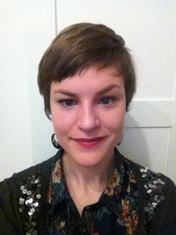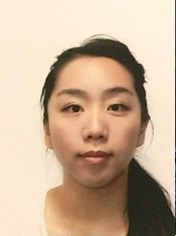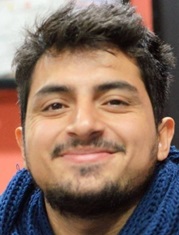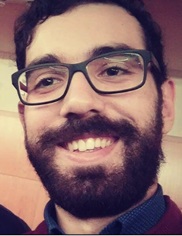In autumn 2016, EGSIEM launched "The EGSIEM Student Challenge", a Europe-wide student competition, which provided a unique opportunity for young scientists to explore the worlds of geodesy, hydrology, flood/drought monitoring and emergency management. The goal of the competition was to educate students in geodesy, hydrology and emergency services, with a focus on EGSIEM research topics; to increase students' awareness of the importance of Earth observation and the usage of data for the monitoring and forecasting of natural hazards; and to awake students' interest, and curiosity in this field. The groups targeted were university students, both undergraduates and graduates, who were residents of the European Economic Area (EEA).
The EGSIEM student challenge was divided into two rounds, the first round with 20 multiple-choice questions was opened on the 1st October 2016 and the second round with 20 written questions started on 15th November 2016. The whole EGSIEM student challenge procedure precisely planned with some activities such as design of the challenge portal, posters, advertisement around the European countries with contacting more than 400 scientists with personal e-mails, activation/deactivation of the challenge website, announcing the list of candidates who passed the first round of the EGSIEM challenge and finally announcing the EGSIEM student challenge winners at 15th of January 2017.
In the course of the 45 day registration period a total of 102 individuals registered themselves for the EGSIEM challenge. The valid number of registered participants was 92 (10 incomplete or ineligible entrants). Young scholars and students from 15 countries and 51 institutes successfully registered themselves for the challenge. In total 63 registered participants participated in the 1st round of challenge. Among them, 37 participants answered the twenty questions correctly within the given time frame
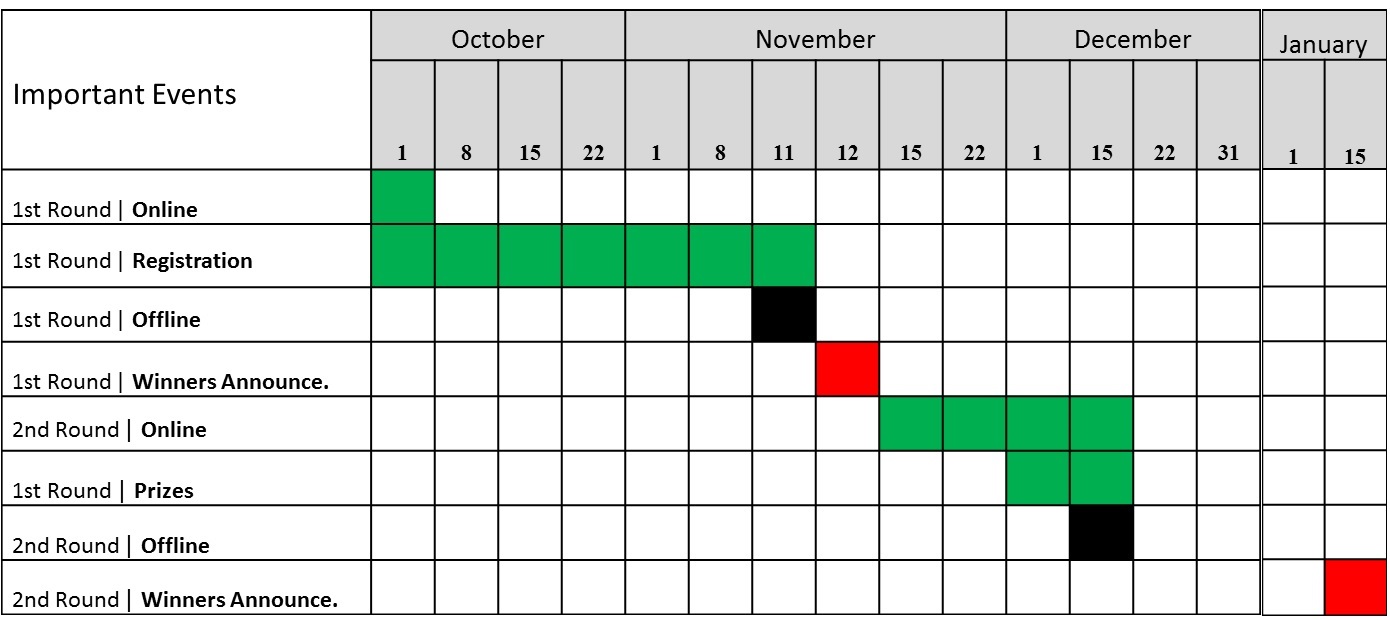
Time plan of the EGSIEM Student Challenge 2016.
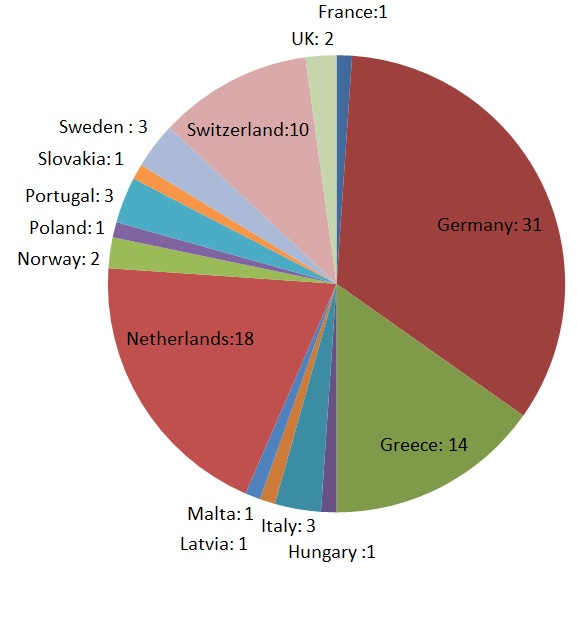
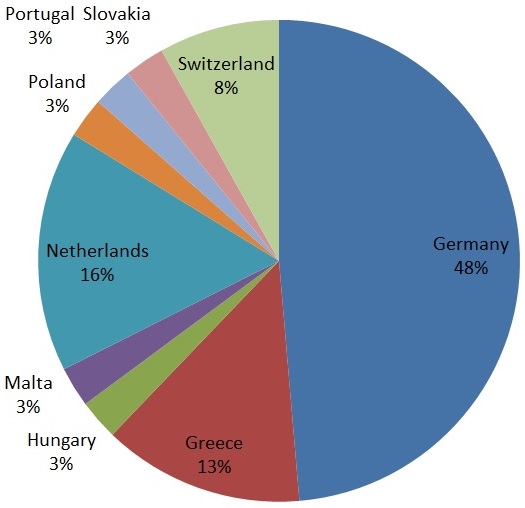
Distribution of Registered Students (Left) and Participants who Passed the First Round (Right).
The EGSIEM student challenge 2016 result has been finalized and we are delighted to announce the four successful winners as follows:
|
1st Winner B.Sc. Philippa Higgins Institute of Hydrology and Meteorology TU-Dresden - Germany Philippa is an environmental engineer specializing in hydrogeology. She has a focus on groundwater management, and research interests in groundwater resources assessment and modelling, climate-surface water-groundwater interactions and climate change impacts and adaptation. She is currently studying her M.Sc. in groundwater and global change, through the Erasmus Mundus Program. Prior to her studies, Philippa worked in the Australian Office for Water Science and in Australian Department of Climate Change. |
3rd Winner B.Sc. Peizo Cheng Rachel UNESCO-IHE, Institute for Water Education Delft – Netherlands Rachel's current research interests includes the analysis of spatial and temporal relationship between surface and subsurface soil moisture, evaluation of remotely sensed soil moisture and/or groundwater products for practical application, improving groundwater budgets by inclusion of remotely sensed data especially in developing regions with sparse in-situ data networks. She is particularly interested in these topics within the context of climate change, sustainable water management and flood risk management. |
|
2nd Winner B.Sc. Julian Rodriguez Villamizar Earth Oriented Space Science and Technology (ESPACE), Technical University of Munich Munich – Germany Julian graduated with a B.Sc. in Geomatics and Land Surveying Engineering from the Universidad Politécnica de Madrid. He is a M.Sc. student at the TUM in the ESPACE program. In parallel to the master studies, he is working at the DGFI and at the Institut für Astronomische und Physikalische Geodäsie as a researcher assistant. He performed research on hydrocarbon localization by multispectral and hyperspectral sensors, including an investigation on atmospheric corrections using on-scene techniques and radiative transfer models. His current research interests include geophysical phenomena in a global and regional scale with focus on ionosphere and gravity. |
4th Winner B.Sc. Alexandros Kazantzidis Department of Geodesy & Surveying, Aristotle University of Thessaloniki Thessaloniki – Greece Alexandros is a M.Sc. student at the Aristotle University of Thessaloniki, School of Rural and Surveying Engineering. Currently, he is working on his diploma thesis under the supervision of Professor Dimitrios Tsoulis. The topic of his thesis is the application of numerical integration techniques for satellite orbit determination. During a diverse and exciting 5-year curriculum he has grown a special interest in geodetic courses, such as gravimetry and satellite geodesy. He is also interested in programming languages. He is working at the time with Python and Matlab. After his graduation, he would like to continue with graduate studies and explore the many aspects and applications of Geodesy. |
We would like to thank all students for their participation, encouragement and motivation during the EGSIEM student challenge 2016.
On behalf of the EGSIEM team, we wish you all the success in your professional and private life.

